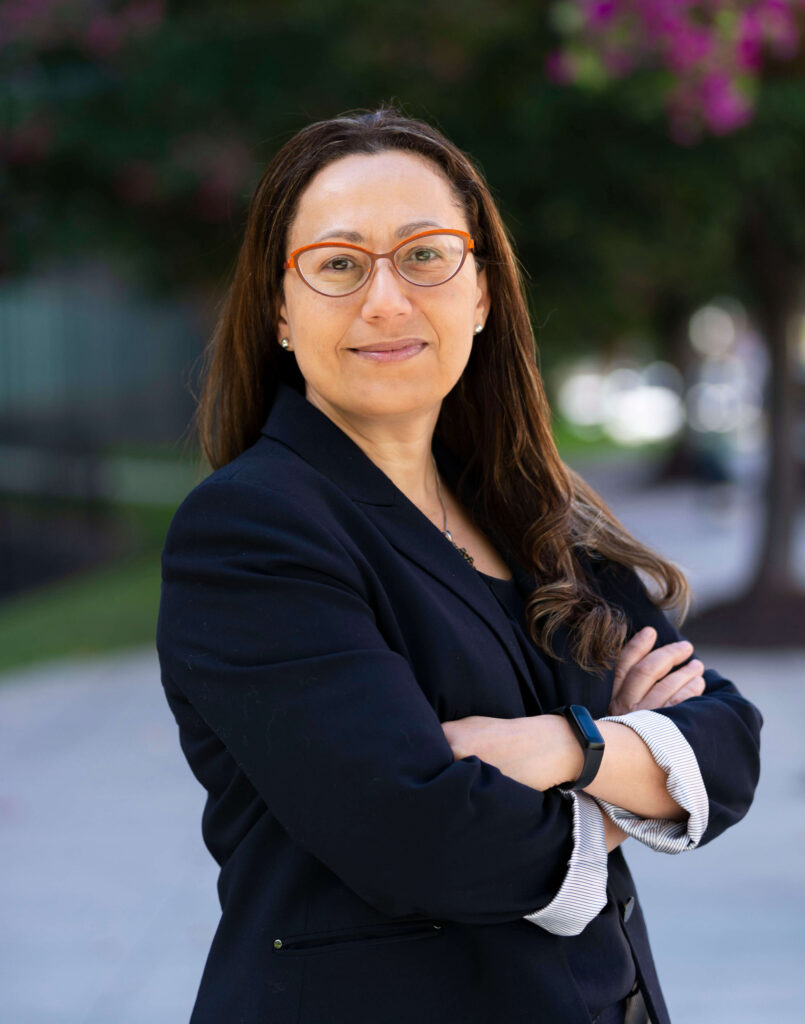
We are living in extraordinary times. Nearly two years have passed since we heard the first murmurs of the COVID-19 pandemic, which upended millions of lives worldwide and, in 2020 alone, pushed 97 million more people into poverty. As the availability of vaccines increased in some parts of the world, there were brief glimmers of hope that the spread was slowing in Europe and North America, travel restrictions were easing, and economies were on the road to recovery. However, the rapid spread of the formidable Delta variant led to a spike in infection rates and once again overwhelmed hospital systems across various parts of the world. It is clear that fighting the pandemic requires protracted efforts — because as things calm down in one part of the world, the pandemic flares up with a vengeance in others.
Meanwhile, climate change is ravaging both developed and developing countries and disrupting lives and livelihoods. Rising temperatures and heat waves have spurred a record number of raging wildfires across Siberia, Greece, Turkey, Italy, Spain, Lebanon, to name a few. Global warming also catalyzed extreme rainfall and unforeseen, catastrophic flooding, as evidenced recently in Western Europe and South Asia.
Low-Income Populations are Hardest Hit by These Shocks
Needless to say, the devastating impacts of climate extremes and the pandemic are most profoundly experienced by people we strive to serve — low-income, rural populations, micro-, small- and medium enterprises (MSME), and women. The Center for Financial Inclusion (CFI), in partnership with Mastercard’s Center for Inclusive Growth, launched a six-wave, longitudinal survey examining the impact of COVID-19 on MSMEs in four countries: Colombia, India, Indonesia, and Nigeria over a year.
Declining business revenues also impacted household resilience and food security
Our research findings echo that of the World Bank and others and show that declining business revenues also impacted household resilience and food security. This pattern is most prominent in Nigeria, where according to the latest wave of data, 34 percent of MSMEs were unable to meet household expenses. As a result, over 22 percent of households ate fewer or smaller meals or went to bed hungry.
Crisis Averted and Opportunity Seized
When COVID-19 first hit in 2020, amidst the backdrop of the global health crisis, concerns also arose about a looming liquidity crisis. To avert a crisis, policymakers and investors worldwide adopted a wide range of fiscal measures, including moratoria, loan restructuring, interest deferrals, credit guarantees, targeted liquidity facilities, and liquidity infusion via central banks. MFIs adopted multipronged strategies — flexible staffing, improved credit underwriting policies, shift to digital financial services, and above all, prioritized the most resilient sectors of the economy to withstand the pandemic and its aftermath.
While the jury is still out on the long-term impact of the pandemic, emerging evidence suggests that the microfinance sector has weathered yet another crisis and is moving towards a gradual recovery, perhaps stronger and more resilient.
The microfinance sector may have weathered yet another crisis and is moving towards a gradual recovery, perhaps stronger and more resilient.
We have seen cash transfers emerge as a critical lifeline for people. Governments of at least 200 countries expanded or introduced cash transfer programs and social protection measures to reach nearly 1 billion new beneficiaries since March 2020. CFI’s research on this topic shows that governments worldwide adopted innovative strategies such as relying on government databases and voter registries to identify eligible recipients. Additionally, many countries adopted policies such as remote account opening with simplified and deferred due diligence and tiered-KYC to ably service population segments lacking any form of formal identification while following social distancing guidelines. These policies served as important enablers for advancing digital financial services during the pandemic, most notably the increase in the adoption of mobile money and the rapid expansion of digital-native players like fintechs and digital platforms.
The increase in mobile money adoption is undeniably an important story of the pandemic. GSMA’s State of the Industry Report on Mobile Money 2021 states that in 2020, mobile account ownership grew by 12.7 percent globally to 1.21 billion accounts, while monthly usage increased with 300 million active mobile money accounts. The rise of fintechs and platforms is another example of how the technology revolution, spurred by COVID-19, is reshaping the landscape of the financial sector. iTechArt’s State of the Fintech Report 2021 states that there are over 26,000 fintech startups globally, which as of February 2021 had cumulatively raised US$121.7 over time. Fintechs offering mobile wallets, payments, insurance, and digital banking were most successful in raising funds. In a similar vein, fintech investments across emerging markets in Asia, Africa, and Latin America increased to US$23 billion over the past five years. The pandemic also accelerated the growth of big tech platforms, and, in 2020, platforms represented eight of the world’s largest businesses by market capitalization. Equally important are the numerous smaller platforms that have been critical in providing informal employment and spurring growth, efficiency, and productivity across virtually all sectors, thereby playing a central role in helping businesses recover from the pandemic.
What Does This All Mean for the Future?
We have seen a tremendous amount of change over the last two years. COVID-19 has laid bare the frailties and failures of the status quo. At the same time, the crisis also presents an opportunity for us to consolidate gains and reimagine a more inclusive, resilient, and sustainable future. There are signs that microfinance and digital finance are converging at faster rates than in the prior decade. We are seeing new partnerships between MFIs and ‘digital native’ firms, hopefully signaling a larger trend. Examples abound and include partnerships between the Egyptian e-commerce platform, MaxAB’s, with Cassbana, an MFI; Nigeria’s Jumia, an e-commerce platform, with Accion Microfinance Bank; and Bolivia’s BancoSol with fintech Flourish.
Even more exciting is the thriving entrepreneurship ecosystem in developing countries. Despite the unprecedented challenges posed by the pandemic, the Global Entrepreneurship Monitor’s 2021 edition reports that many early-stage entrepreneurs across Latin America and the Caribbean, the Middle East and North Africa (MENA), and India discovered new opportunities and started businesses despite the pandemic, or maybe partly because of it. Moreover, younger people are more likely to start or run a business, which is a boon for both Africa and MENA, where over 60% of the population are under 25 years of age and very digitally savvy. In fact, by 2030, young Africans will make up 42 percent of the world’s youth.
Even more exciting is the thriving entrepreneurship ecosystem in developing countries.
As we know, a favorable enabling environment is key for entrepreneurship to flourish. To encourage and test fintech innovation, regulators worldwide have set up sandboxes. Interestingly, of the 73 sandboxes reported to exist as of November 2020, 70% were created in emerging markets, and 31% have themes related to financial inclusion. Accelerators and incubators are also proliferating, and as of April 2018, at least 7,000 were known to be operating worldwide and supporting startups with funding, mentoring, added visibility, and networking opportunities.
These trends indicate that despite the uncertainty and headwinds caused by the pandemic, there is hope that we will emerge stronger and better positioned to promote wellbeing, resilience, and prosperity for all.
Financial Inclusion Week: An Opportunity to Promote Prosperity in This Time of Uncertainty
This Financial Inclusion Week, we have a packed agenda with hours of live and on-demand content on these critical topics. During the week, we have over 300 speakers discussing varied issues from invisible barriers such as social norms to promoting women’s entrepreneurship; the role of humanitarian actors in digitizing and designing inclusive payment systems; and strategies for supporting migrants, youths, and elderly, to name a few.
Thank you for joining us at Financial Inclusion Week 2021. Let’s Promote Prosperity in this Time of Uncertainty!










